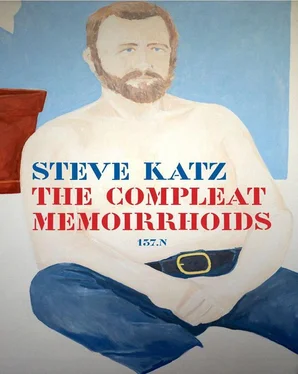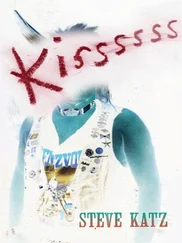Art Carney as Norton was my favorite character on Jackie Gleason’s Honeymooners , and he still is, and always will be. The Honeymooners is forever. And Norton is the name of the franchise that dominated the lucrative academic anthology scene from the 60’s through the 80’s and beyond, used widely in beginning lit classes. These are massive volumes that seem to entrap in their literary pseudopods the most valued writing from all places in the English speaking and writing world. These presumptuous tomes are designed in the mode of fashionable work shoes: corporate uniformity, deliberately unattractive blue covers, small print that discourages intimacy with the text. A young lit student or a casual reader might assume that any writer not represented on the thin, translucent pages of a Norton Anthology wasn’t worth considering, not as literature.
During Norton’s reign my work, when it was noticed at all, was classified as post-modern by scholars and critics in the pleasure-domes of academia. The designation is a convenience for those toddling towards the voluntary menopause of PhD. It relieves the weary pilgrim from having to read too many books. It allows a person to sample instances from a category that might represent the whole shebang. The novitiate then can hurtle slowly towards tenure. My view of the situation is a bit hypocritical because though I never got a degree I did get backed comfortably into tenure, and didn’t complain. It was a survival compromise. A piece of good luck. For my sense of my own work, however, and how I want it to present in the world the “post-modern” designation feels like a shroud of heavy carpet. It presses down on my pages and makes them invisible. They were never intended as part of a subset, but as the testament of an individual, a majority of one.
When the writer and critic, Jerome Klinkowitz, told me he was editing the Norton Anthology of Postmodernism and wanted to include a piece of mine, I slipped easily into hypocrisy. It was hard not to relish the prospect. After all, thinks this writer famished for attention, how can one ever get to immortality without leaving a drop in the Norton bucket? Even the great genius of the fringe, the poet Ted Berrigan, has lines about how he was adjusting what he was about to present at a reading in case there were some Norton Anthology scouts in the audience.
My chunk of immortality was nixed by the the chief editor of the whole Norton series, Professor Nina Baym of the University of Illinois at Champagne-Urbana. My hope for payback after being smothered for years under the “postmodern” rubric was dissipated in the winds of editorial command hierarchy.
Here my writer’s world paranoia set in. Professor Baym and I were undergraduates together at Cornell. Then she was Nina Zippin, a brilliant young editor of the Cornell Writer , a widely informed intellectual from an educated family, her father a well known chemist. I was a clueless kid transferring from pre-vet in the tuition free College of Agriculture, to Liberal Arts, which I couldn’t afford. My real ambitions were in writing, to be William Faulkner, Dylan Thomas, Albert Camus, and as a city boy from Washington Heights I couldn’t see that ambition fulfilled in agriculture, though they tried to sell me the alternative of Agricultural Journalism. Maybe they were right. At some point (I can still visualize the moment, the gouged and stained blonde bench-table in the Willard Straight Hall cafeteria, friends coming and going) I told Nina that I wasn’t attracted to her. This was a terrible mistake. After that moment we rarely talked again. “I like you for your mind, not for your looks,” is not a compliment to the potential wooee during butterfly years.
Years later, while I was teaching at Notre Dame, I wandered down to Champagne-Urbana to visit Sinda Gregory. She was the girlfriend of the critic, Larry McCaffery, a well known fan of “post-modern” fiction. He had moved to San Diego to take a position at San Diego State and for a while was interested in my work. Sinda was going to join him there after she wrapped up her degree at Illinois. She invited me down for a visit and I was happy to accept. She is a writer of mysteries, a beautiful woman whom many say resembles Emmy-Lou Harris. I stayed for several unexciting days. I was at my wounded and whining worst and Sinda was friendly but seemed indifferent to me. Something about the visit stirred my writer’s paranoia. Sinda was on the phone a lot with Larry. I imagined she was reporting to Larry the critic about my habits, complaints, foibles. I feared I was being exposed, unwrapped perhaps for some critical work, some devious litworld writing.
Professor Baym was Sinda Gregory’s thesis advisor. That pumped a little excitement into the visit. I hadn’t heard yet about the Norton refusal. I called the good professor thinking it might be fun to meet briefly over a cup of tea, just to reminisce. “Hey what if I come over to your office to say hello and embarrass you?” my tongue in my residually hippy cheek. “No! No!” Professor Baym says, panic in her voice. It was perplexing. I didn’t get why she didn’t want even a brief visit. She might have called the cops if I just showed up. The bum’s rush was what I got, booted clear out of my nostalgia, perhaps indulging her own lingering resentment. Curious about her veto of me is that in addition she nixed a piece by Ron Sukenick. The three of us had been at Cornell together. It all felt kind of gummy. Was this a judgment of the quality of our work? Was it revenge? An academic power snit? I don’t know if Ron had ever said anything offensive to her. I had sadly opened my yap that day in the student union we fondly called “The Straight” and I said something like, “I’m not attracted to you, Nina. I can’t go out with you, Nina.”
I felt mostly disappointed, a little robbed. Whatever happens, life goes by with a swish. Having written, published, and presented all these books I feel I have an obligation to exist, and being in the Norton Anthology would have been at least one smithereen of evidence.
All you young artists striving for immortality listen to this small joint of sad advice, that you must never say such a thing as fell from my mouth to the young woman or young man in your sights. The wheel of recrimination turns very slowly, but it hits its points with great accuracy.
I knew I was getting sloppy seconds when Leo Garen invited me to co-write the screenplay for Grassland . Rudy Wurlitzer had already turned him down. He had done Two-Lane Blacktop , and was at work on Pat Garrett and Billy the Kid , so his Hollywood career had launched big time. I’d never written a screenplay. Here was an opportunity to learn the process. It wasn’t much, but I needed money. Leo had read a piece of mine in New World Writing and thought we had a compatible sense of fantasy/reality. I agreed to talk to him. I went first to his apartment on Sheridan Square. I had no clue I was getting into a stressful collaboration with someone I would soon figure was the most obnoxious person I’ve ever liked.
Leo was on the phone when I got there at about five P.M. He wore a t-shirt and pajama pants, big belly hanging over the waistband. I watched him call women one after the other out of a well-thumbed address book, trying to snatch anyone who would agree to come over, spend the evening with him, share food from the really good Chinese take-out next door. This flash of bachelor life made me happy for the moment to be living upstate with wife and kids. His apartment was dimly lit brown and beige, furnished with collapsed couch and easy chairs the Salvation Army would have rejected. A chipped formica table with bent tubular chairs sat at the kitchen doorway. Framed posters hung on the walls, from the off-off Broadway productions Leo had directed, the most familiar to me being The Slave and The Toilet , by Leroi Jones, before he became Imamu Baraka. Leo sat in a cone of light from a floor lamp and gestured me onto the other easy chair, while he made a few more calls.
Читать дальше












